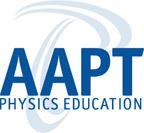- Home
- What We Do
- Laboratory Immersions
- Immersions 2020
- Imm2020Reed_SpatialLightModulator
Reed College, Portland, OR
Optics Experiments with a Spatial Light Modulator
Dates: May 27, 2020 to May 29, 2020
Number of setups available: 1
Maximum number of participants: 2
------------------------------------------------------------------------------------------------------------------------------------------
This Immersion aims to share experiences of incorporating spatial light modulators into junior-level optics labs and senior year research projects. For example, in our junior-level optics course, students start out by assembling an “open cavity” HeNe laser that consists of a HeNe laser tube with bare windows at each end and external mirrors on a rail that need to be aligned to achieve lasing. The working laser then serves as the light source for subsequent experiments, including experiments with a Spatial Light Modulator (SLM), the focus of this immersion. SLMs are versatile: Their ability to manipulate the phase and/or amplitude of light in a spatially resolved and computer controlled manner can be used, for example, to generate holograms or create unusual states of light, such as beams with orbital angular momentum. They are a flexible way to implement and teach Fourier optics. With feedback of their output as recorded by a camera, SLMs can even be utilized as nonlinear dynamical systems that self-generate complex spatio-temporal dynamics.
At a minimum, participants in this Immersion will learn how to set up and align the laser, SLM, and optics, use computer control to manipulate the laser beam’s phase via the SLM, use phase control to generate simple diffraction patterns as well as Bessel beams, and set up polarization optics to implement amplitude control.If time allows, participants may image the Bessel beam’s helical phase fronts via interference, use the SLM as a spatial filter to manipulate the Fourier transform of an object, or pursue other extensions.
Participants do not need to bring anything, although a laptop for taking notes and saving any data files may be useful.
Safety: Laser light will be present during the experiment, but will be at an eye safe power level. Laser safety goggles will be available as needed.
Estimated cost: The experiments can be performed with any laser light source of sufficient beam quality and educational SLMs, such as the Jasper Display SLM Education Kit (https://www.jasperdisplay.com/products/edk/jd955b/) (costs on the order of $5000), which will be available during the Immersion. A second systems used in the Immersion, reflecting the equipment utilized by our students, is a MiCOS HeNe laser (now eLas https://www.e-las.com/de/produkte/laser-grundlagen/ca-12000102-he-ne-laser/) and a Meadowlark SLM (https://www.meadowlark.com/product-family-details.php?pid=139).
NOTE: Jasper Display Corp. is offering a $2000 discount to all participants in this Immersion experiment. Participants are also eligible to apply for a $2000 Reichert Foundation grant to purchase the Jasper SLM Education Kit. With the discount and a successful grant application, the SLM Education Kit net cost is only $1000.
Mentors: Lucas Illing
Lucas Illing received his Vordiplom in physics from the Humboldt University of Berlin, and his M.S. and Ph.D. in physics from the University of California, San Diego. He was a postdoctoral scholar at Duke University before joining the faculty at Reed College in 2007. His research interests are at the intersection of nonlinear dynamics and experimental physics. His current focus is on the dynamics of networks of delay systems, such as the dynamics of coupled optoelectronic oscillators. Lucas has taught a wide range of courses at Reed College, including an upper-division optics course.





